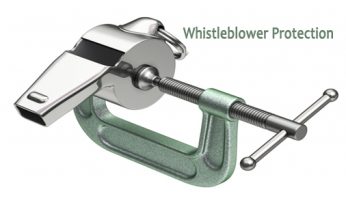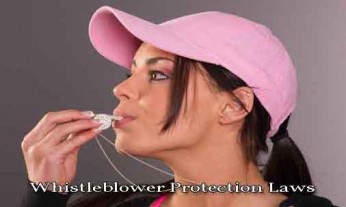 Whistleblower Protections? When Michael Johnson learned that the company he worked for had amended its 2016 tax return to reduce its tax burden, he filed a whistleblower complaint against his employer. Blue Shield, he claimed, had listed over $3 billion less in premiums than the original filing report. Blue Shield responded with a lawsuit against Johnson for breach of contract, alleging he had shared confidential information about the company. Just how much credence is there to Blue Shield’s argument? Do whistleblower laws give employees the ability to disclose company secrets? For answers to these, and other business questions, contact a local business law attorney.
Whistleblower Protections? When Michael Johnson learned that the company he worked for had amended its 2016 tax return to reduce its tax burden, he filed a whistleblower complaint against his employer. Blue Shield, he claimed, had listed over $3 billion less in premiums than the original filing report. Blue Shield responded with a lawsuit against Johnson for breach of contract, alleging he had shared confidential information about the company. Just how much credence is there to Blue Shield’s argument? Do whistleblower laws give employees the ability to disclose company secrets? For answers to these, and other business questions, contact a local business law attorney.
California Whistleblower Protections
In California, employees are encouraged to report suspected violations of state and/or federal law to appropriate agencies, which are then authorized to investigate claims of wrongdoing. In fact, as per California Labor Code Section 1102.5, individuals who report suspicions of wrongdoing by their companies are considered a protected class. Retaliation against such individuals is prohibited.
What, Exactly, Constitutes Whistleblowing?
Whistleblowing is the reporting of illegal or safety violations that may be occurring in the workplace. Employees may refuse to engage in activities deemed to be illegal or unsafe, and may ultimately report problems to applicable agencies for investigation.
Whistleblower Protections
Businesses may not legally create policies that prevent employees from reporting unsafe or illegal situations in the workplace. Additionally, the law provides that employers may not:
- Retaliate against individuals who choose not to engage in workplace activities they believe to be against state or federal laws or OSHA regulations;
- Retaliate against employees who report infractions.
Retaliation may take many forms, all of which are violations of California Labor Code. Common examples include:
- Demoting or firing the employee;
- Denying training opportunities, promotions, or access to higher-level meetings;
- Forcing the employee to quit by making work life untenable.
Section 1102.5 of the California Labor Code requires employers to make restitution for any of these actions and to reinstate the employee to a job from which they have been fired when these actions occur.
Whistleblower Protections from a Lawsuit?
One wonders whether or not whistleblower laws shield Johnson, who is being sued by Blue Shield. The truth is, the courts have reached different conclusions in cases across the United States in recent years. Generally speaking, they will want to take a look at a number of factors, ranging from how the materials were obtained and to whom they were given, to the employee’s need to preserve the items in order to “blow the whistle.” While a comprehensive policy regarding secret materials will help any company with its most confidential documents, it is unclear how such a policy will stand against whistleblower protections. [Read more…]



